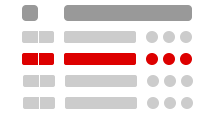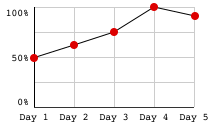Problems with Inflation & Deflation
Price Level: the average of current prices of goods and services in an economy.
Inflation: a sustained increase in the price level.
Hyperinflation: when the price level increases more than 50% a month.
Deflation: a sustained decrease in the price level.
There are four problems with inflation & deflation:
- Redistribution of income
- Redistribution of wealth
- Decreases Real GDP & Employment
- Decreases Production
Redistribution of Income and Wealth
Redistribution of Income
Employers and employees sign a wage contract which lasts usually a year or longer.
When a sudden increase in inflation occurs:
- Employees are worse off because their wages buy less than what the contract says
- Employers are better off because the price level of produced goods increase, thus increasing their profits.
When a sudden decrease in deflation occurs:
- Employees are better off because their wages buy more than what the contract says
- Employers are worse off because the price level of produced goods decrease, thus decreasing their profits.
Redistribution of Wealth
Borrowers and lenders sign a loan contract in which the borrower pays the full amount of the loan in instalments, including interest.
When a sudden increase in inflation occurs, the money the borrower repays to the lender buys less than the originally loaned money. So,
- Borrowers are better off
- Lenders areworse off
When a sudden decrease in deflation occurs, the money the borrower repays to the lender buyers more than the originally loaned money. So,
- Borrowers are worse off
- Lenders arebetter off
Lowers Real GDP, Employment, & Productivity
Lower Real GDP & Employment
Unanticipated inflation causes a temporary increase in firms profits, thus increasing production and employment.
Therefore,
- Real GDP rises above potential GDP
- Unemployment rate < Natural unemployment Rate
However, after a certain time period, profitable investments and spending falls.
Therefore,
- Real GDP falls below potential GDP
- Unemployment rate > Natural unemployment Rate
Decreases Production
A sudden burst of inflation or deflation causes the economy to turn into a casino.
Instead of inventing a new product, or producing more goods, people find it more profitable to forecast inflation and deflation rates and manage their investments.
Example: Farmer decides to invest in stocks and bonds during inflation, rather than growing more crops.
This halts production of goods. Instead of doing what they are specialized in, they are instead forecasting inflation to gain more profit.






